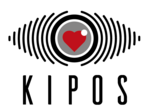KIPos addresses the postoperative care and monitoring of cardiac surgery patients. The postoperative care of these patients is complex at every treatment phase, as life-threatening complications can occur at any time. These postoperative complications are wide-ranging, from postoperative cardiovascular and/or pulmonary failure to stroke and postoperative infections. All these complications can usually be prevented or their effects minimized if they are correctly identified and treated at an early stage. For this purpose, it is necessary to draw the right conclusions from data obtained postoperatively and to follow the ideal further treatment path.
Due to the complexity of the interaction, the individual parameters collected, and a large amount of data available (depending on the unit of care), it is extremely difficult to interpret the clinical parameters, especially in an ongoing clinical routine.
Goals & Approach
KIPos aims to establish an AI-driven, interactive support system for the postoperative monitoring of cardiac surgery patients, which will not only significantly improve the quality of postoperative patient care but also ease the burden on nursing and medical staff. For this purpose, all collected data (vital-, blood- and functional- parameters as well as imaging diagnostics) - adapted to the respective postoperative phase - are to be analyzed via an AI-controlled unit and processed based on predefined treatment algorithms in such a way that postoperative complications are detected at an early stage. Based on this detection, the appropriate nursing, medical, diagnostic and therapeutic measures to be applied are directly proposed. In this context, KIPos will provide an assistance solution to strengthen the skills and competencies at the interface between medical staff, patients, and their relatives, as well as AI-based data processing in the patient's room.
The interaction with the AI-controlled support system will be contactless. In addition to a sterile and ergonomic workflow, this enables KIPos to support the medical staff at any time during the clinical routine without drawing attention away from the patient.
HHI Contribution
The work of the Fraunhofer HHI researchers pursues two core objectives in the KIPos project. Firstly, the team will analyze postoperative, image-based patient data to provide useful and comprehensible results to medical professionals in an automated fashion. The focus here is on two areas: On the one hand, video data (RGB, HSI) is analyzed to extract relevant vital signs from the data in a non-contact manner. On the other hand, different image modalities are evaluated to detect changes over time and to automatically recognize and display anatomical and histological changes compared to previous images.
The second core objective is to create a perceptual interface to the patient data, analyses, and devices, which can be implemented for example on a bedside monitor. For this purpose, the researchers will capture the interaction area at the patient's bedside via a 2D camera and analyze it using computer vision and machine learning methods. The objective is to gain a better understanding of the current work situation in real-time. Specifically, this should enable contactless and thus sterile and ergonomic interaction with medical devices. Furthermore, the perceptual interface is intended to proactively support employees through the contactless recognition of certain work processes, such as the leg-raise-test.
Both objectives are designed to support nursing staff and allow efficient, ergonomic, and satisfactory work management while complying with important hygiene requirements. In addition, the novel concepts should allow more reliable decision-making on subsequent treatment steps and shorten response times.
Support KIPos
We would be pleased if you would support us in creating a hand gesture dataset we want to develop and research in this project. For this please visit our gesture recorder website, it only takes a few minutes. Thank you!
Consortium
- Digital Health Lab Düsseldorf
- Fraunhofer HHI
- AICURA Medical
- Protestant University of Applied Sciences Ludwigsburg
You can find more information about the partners and our activities on our KIPos project website.
